The Weir
- Chris O'Rourke
- Aug 14, 2025
- 4 min read
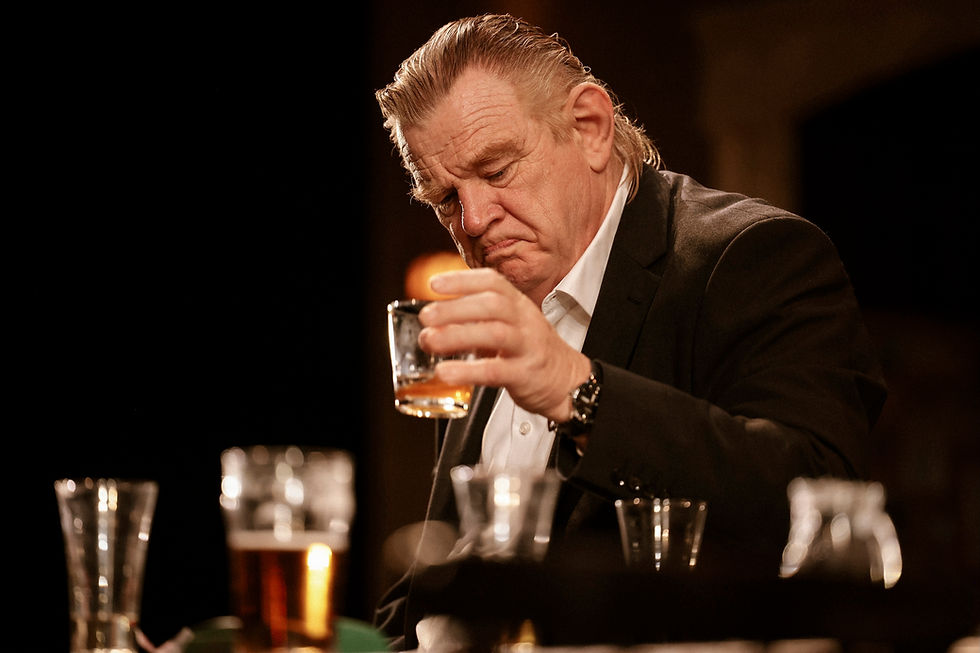
Brendan Gleeson in Conor McPherson’s The Weir. Image, Rich Gilligan
*****
You wonder sometimes. Especially when so many theatre lovers say they no longer see the point. Even if Covid hadn't decimated audiences, ticket prices, the cost of parking, of a coffee, never mind eating out, of the nightmare of public transport and the worst nightmare of driving to a show; it compels you to ask is going to the theatre worth your time and money? Especially as theatre often force feeds its audience proselytising lectures on how people should behave, blunting their points with dialogue incompatible with how people speak or think. Passed off as plays in which ideas about people are substituted for people themselves, delivered like judges passing sentence. Or else there’s the numberless, ready-made plays. Homogenised, one person monologues with madcap characters and maybe a musical moment or two on the journey towards personal growth. So prevalent it seems many playwrights are all writing the same play. No wonder it makes you stop and wonder. Till you see the award winning The Weir by Conor McPherson, first produced in 1997. An hour and forty minutes in which five people talk nonsense and tell ghost stories in a twilit pub. A play that reminds you why you love theatre. For nights such as this.
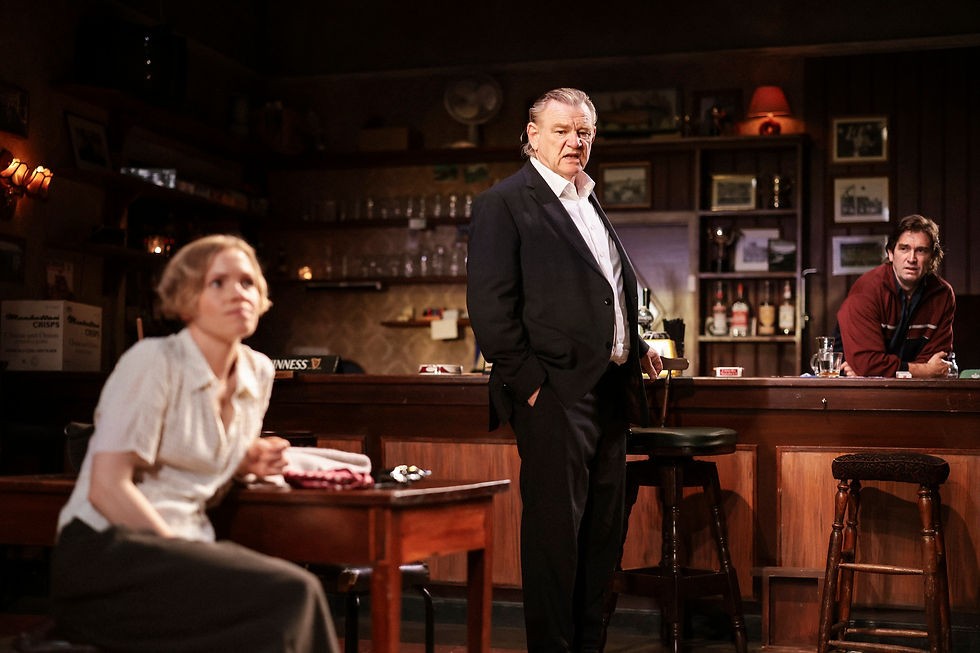
No beautiful, self-aware people here looking to be their best, artspeak selves, no high seriousness, no overt propaganda. Just a ragtag mess of common humanity gravitating to an unnamed pub in an unnamed rural location in the not too distant past. Owen McDonnell’s barman Brendan, watching the world from behind the fortress of his bar, chats and drinks with elderly bachelor boys wiling away their days before the German tourists arrive. Seán McGinley’s doddery Jim grabbing some me-time from caring for his mother. Brendan Gleeson's rueful Jack, the group’s natural leader, the fulcrum around which all else revolves. Their reveries interrupted as Tom Vaughan-Lawlor’s hilarious Finbar enters like a rural Del Boy. Introducing into this sacred male space, immortalised in plays like Jimmy Murphy’s Kings of the Kilburn High Road and Tom Murphy’s Conversations on a Homecoming, the first step towards a progressive future: a woman. Kate Phillips’ Valerie stepping into the all male cauldron with wonderful, understated assurance. Delivering the fifth of five masterclass performances.
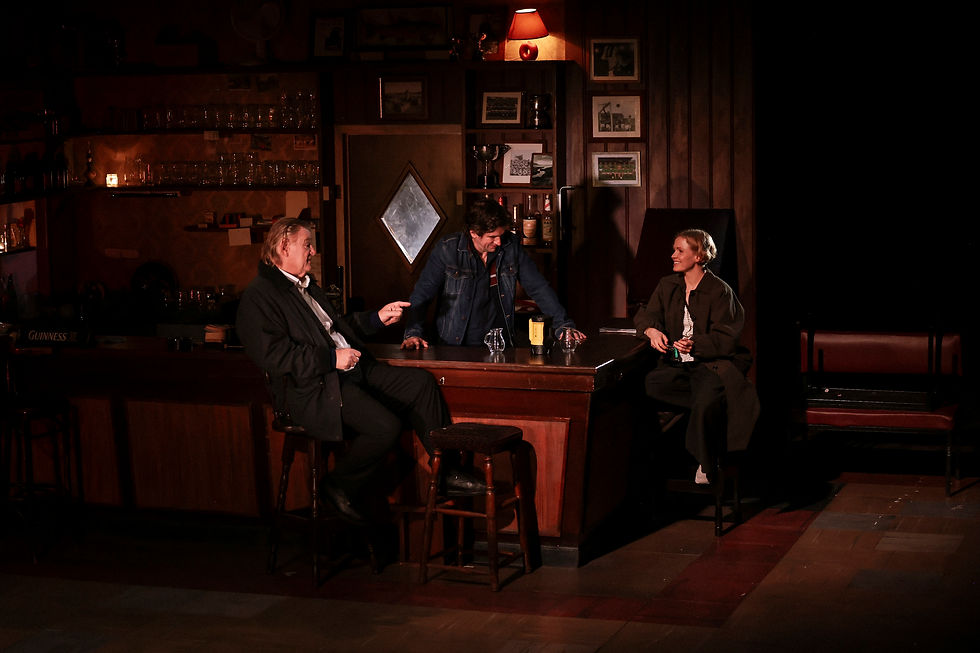
Relocating from Dublin, Valerie isn't just a woman, she's a different class, a different place, a different way of being in the world. McPherson’s tensions between the needs of the future and the lost treasures of the past echoed in tensions between the scientific and the supernatural, between self-determination and the ravages of life. Jim’s gambling method versus Jack’s hunches. The concrete world of bar stools and the other world of ghosts. Life as it is and life as it might have been. As each tells a ghost story, each reveals a personal vulnerability, with Valerie’s the most poignant. Revealing, in the telling, that there’s no real difference between us after all. Age, sex, class all dissolving as the night moves through personal vanities towards the tender glory of human connectedness.
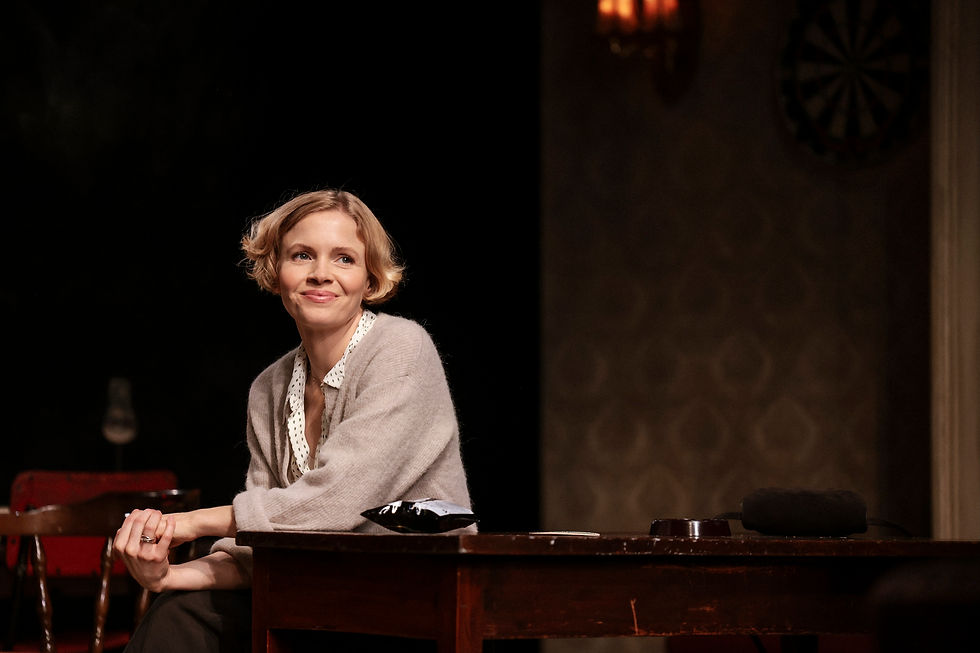
Kate Phillips, in Conor McPherson’s The Weir. Image, Rich Gilligan
Throughout, the pub is the real star of the show. A liminal space characters inhabit like living ghosts. Getting drunk a perk. The pub serving as the cradle of care for a community. A place to talk, brag, joke, argue, reflect, confess, escape to, all the while achieving acceptance and a kind of healing in its communal embrace. Compassion found in buying rounds and in the tender refusal of a bought round, in the embrace of friendship and the offer of a lift home, in the ‘have one yourself’ and communal cigarettes. Rae Smith’s angled set a depository of exquisite detail which, like Mark Henderson’s superlative lights, warms with the texture of belonging. Capturing not the idea of a pub but its very soul. Where blood pumps through the veins of people you never knew yet in whose joys, hurts and irresistible humour you recognise as friends. McPherson’s direction weaving it all into something magical.
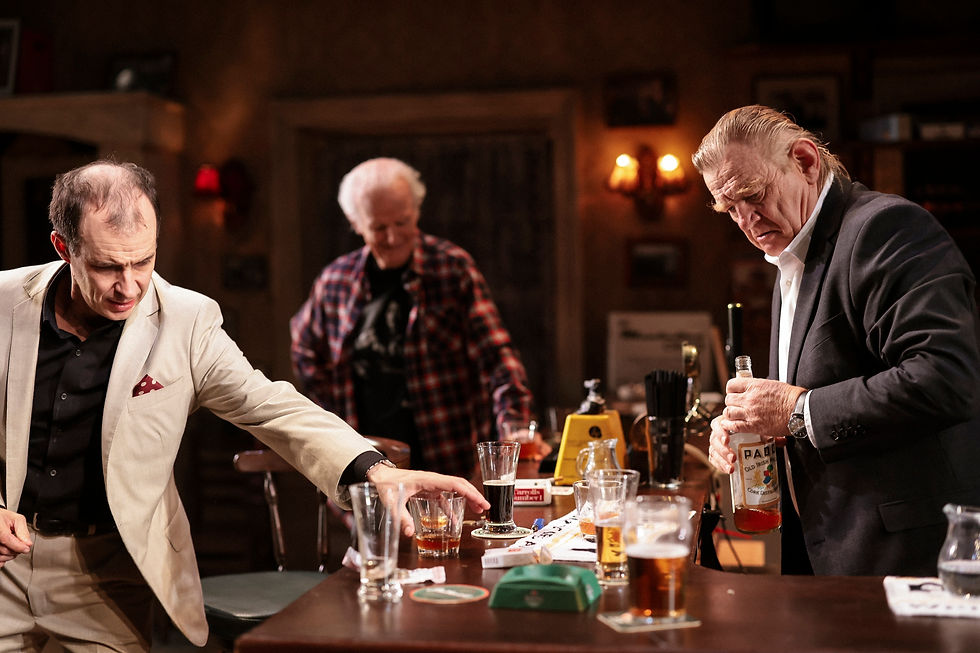
Some plays date. Others, like The Weir, enriched with age like a fine whiskey, become classics. A whiff of nostalgia for a fading time might grace the palette occasionally, but it’s a burnish on the play’s gentle afterglow. Like the sage picking up what gets lost along the way, The Weir fuses times past with times present. Reopening fresh wounds in the process. The lock in, the generous pour, the decent priced pint and the occasional ‘one on the house’ might still be found in some rural communities, but in places like Dublin it's mostly the stuff of bittersweet memories. As are many of the communities that gravitated around such places of care, with many such pubs now gone. Where five people talking in a bar reveal the heart and soul of the universe. Utterly and effortlessly brilliant, The Weir is not to be missed.
The Weir by Conor McPherson, presented by Landmark Productions and Kate Horton Productions in association with 3Olympia Theatre, runs at 3Olympia Theatre until September 6.
Transferring to The Harold Pinter Theatre, London from September 12 to December 6.
For more information visit TheWeirPlay.





















